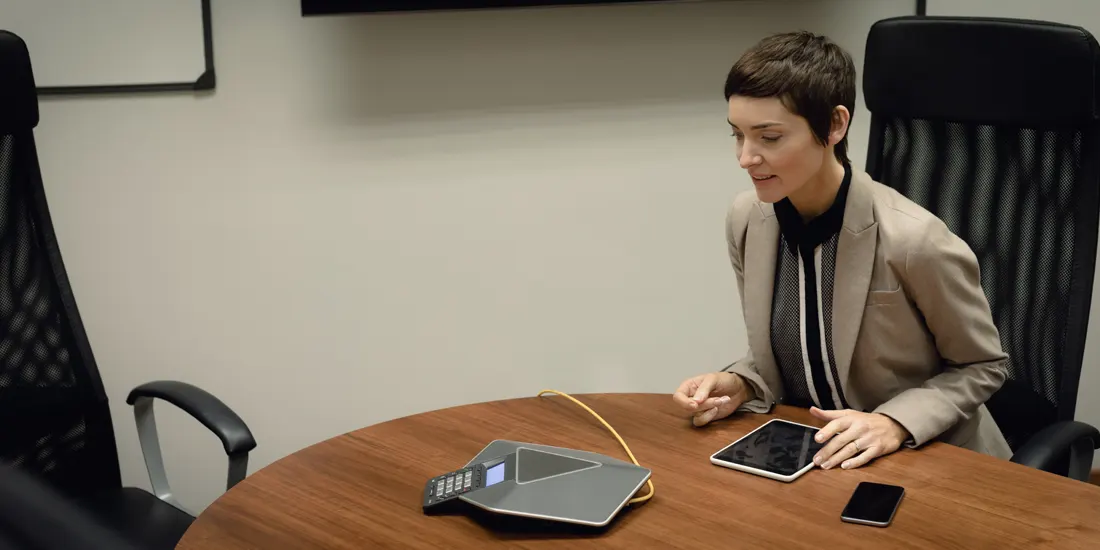
Companies: How to Nail a Phone Interview

An initial phone interview has become the norm with many Companies today. They save important time determining the best applicant match for an advertised position and allows businesses to quickly and effectively evaluate candidates. Still, doing a good phone interview calls for meticulous preparation and execution. Key techniques for businesses to provide a good experience for applicants and interviewers will be discussed in this article, as well as how to perfect phone interviews.
Preparing for a Phone Interview
Doing a good phone interview involves preparation. Businesses should invest time in making sure applicants and interviewers are set up for success.
1. Define the Purpose of the Interview
Clearly state the goal of a phone interview before starting one. An interview should focus on and evaluate, experiences, cultural fit and technical ability. Clearly stating the objectives of the interview will assist in directing the discussion.
2. Develop a Structured Interview Guide
Developing a disciplined interview strategy can help the phone interview process to be more consistent and successful. Follow a simple interview guide to provide a set of questions. Try to cover important questions that include? Relevant experience of the candidate
- Skills and abilities
- Cultural fit
- Curiosity about the job and business.
Having a well-organised guide allows interviewers to gain detailed information from the candidate, and gives candidates a chance to expand on their experiences, skills and other important information, this uniformity guarantees fair evaluation of all applicants and helps to avoid prejudice.
3. Choose a Quiet and Comfortable Environment
Interviewers should choose a calm, pleasant setting away from distractions to guarantee a flawless phone interview. Background noise may be distracting and interfere with conversation, impairing applicant assessment.
Always make sure you have a clear and dependable phone line or fully operational conference tool. Try the technology ahead of the interview to prevent any technical problems. A clear line will enable better communication and enable both sides to concentrate on the interview.
Conducting the Phone Interview
The phone interview comes next whenever you're ready. Following these best standards during the interview will enable the applicant to have a good experience and provide insightful analysis.
1. Start with a Warm Introduction
Start the interview by introducing yourself, and thank the applicant for their time. A pleasant voice creates a favourable environment for the discussion. Inform the applicant of the length of the interview and what to expect during the call.
You can say, "Hello, [Candidate's Name], thank you for spending the time to talk with me today. Provide a little information about your company, the job advertised and the type of person you are looking to employ. Ask why they think they would be a good match etc.
2. Listen Actively
A phone interview calls for active listening. Give the candidate your whole attention when they reply to your questions. Steer clear of interrupting or hurrying them; instead, let them completely communicate their ideas.
Making notes helps you to recall important aspects. Following up with candidates depending on their responses may also help promote a more conversational flow and inspire them to provide more information.
3. Ask Open-Ended Questions
Open-ended questions force applicants to provide thorough answers, enabling you to learn more about their experiences "Did you enjoy your last job?" you may question, "What did you find most rewarding about your last job?"
Open-ended questions encourage applicants to highlight their abilities, values, and motives and engage in conversation. This method may also allow you to evaluate cultural fit with the business.
4. Maintain a Professional Tone
Although a laid-back environment is crucial, a professional tone throughout the interview is important. Show politeness and respect; steer clear of slang or colloquial language. A professional tone sets a communication benchmark and captures the values of the company.
5. Allow Time for Candidate Questions
A two-way dialogue depends on a candidate asking questions. This shows that you respect their opinions and allow them to decide if your business would be the ideal match. When answering questions, be honest and upfront to establish rapport and trust between you and the candidate.
You may ask, "Do you have any questions regarding the role or our company culture before we finish?" I would be pleased to provide more details.
1. Summarise Key Points
List salient features of the discussion before calling the interview close-ended. This helps you to better grasp the background of an individual and offers a chance to clarify any details.
You may remark, for instance, "Thank you for sharing your project management expertise. Your history obviously fits very well with what we are looking for. I like your analyses of your leadership approach etc.
2. Outline Next Steps
Clearly state the next actions in the recruiting process, including when applicants should expect to hear back from you. Offering this information keeps applicants involved in the process and helps control expectations.
You may add, "We will be conducting further interviews next week; you should hear back from us within a few days with respect to the following actions. Again, I appreciate your time.
3. Thank the Candidate
Thank the applicant for their time and interest in the job to wrap up the interview. A basic thank you may show professionalism on behalf of your business and have a lasting effect.
4. Evaluate and Document
Spend time evaluating the applicant using your organised interview notes after the interview. While they are still fresh in your thoughts.
Common Pitfalls to Avoid
Although phone interviews are a useful tool, companies should avoid typical mistakes to guarantee a seamless and efficient procedure.
1. Relying Solely on Resumes
Although resumes provide important information, they don't often capture the whole picture. Depending only on resumes might cause one to ignore applicants whose experience, qualifications, and prospective match would be perfect. Invest time in asking pertinent questions during the phone interview.
2. Lack of Preparation
Ignorance of how to be ready for a phone interview could cause a fragmented and ineffective discussion. A good interview depends on careful preparation of questions, an objective setting, and a pleasant atmosphere.
3. Ignoring Non-Verbal Cues
Although phone interviews lack visual clues, closely listening to a candidate's tone and energy, may also provide useful information. Listen to how they express ideas and feelings; this will help to discover their enthusiasm for the job.
Conclusion
Organising a phone interview calls for careful planning, clear communication, and an eye on producing a favourable applicant experience. Companies may find top talent by clearly stating the goal of the interview, creating a disciplined guide, and attentively listening to applicants, thereby advancing a professional and polite recruiting process.
Knowing how to conduct a phone interview well will help companies stand out in the competitive talent pool as they depend more and more on phone interviews to expedite the recruiting process.
Apart from helping businesses evaluate applicants, a good phone interview strengthens a company's brand and improves rapport with prospective employees. Using the techniques described in this blog will help companies master phone interviews helping to select the perfect candidate.
Categories
Popular Posts
- How Long Should a Cover Letter Be?
- You May Need to Diversify Your Hiring Process
- Can a Recruitment Agency Land Your Dream Job
- How to Deal with Job Rejection
- Unlock the Potential of Remote Hiring
- 10 Tips for Onboarding a New Hire
- The Benefits of Working in the UK Fintech Industry
- Which Recruitment Agency Is Best
